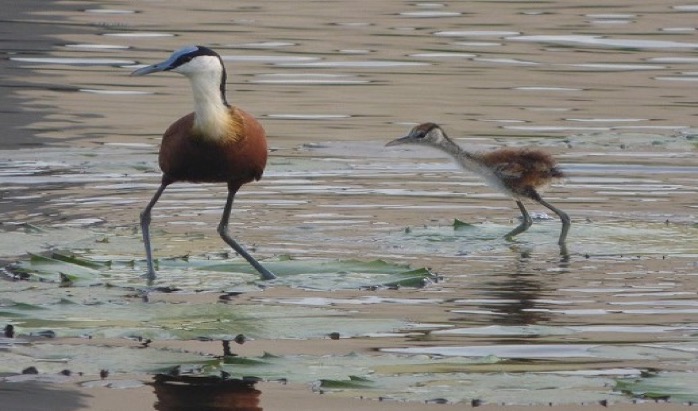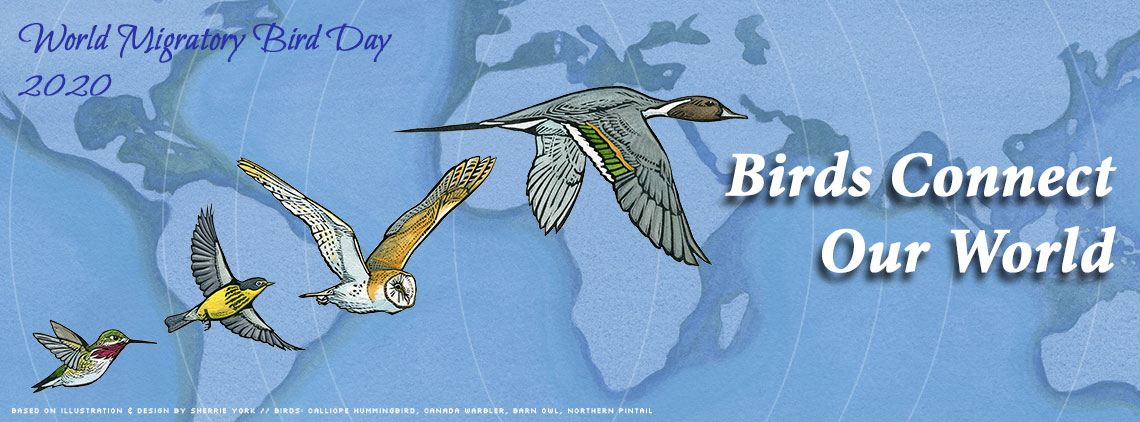
In commemoration of this year’s World Migratory Bird Day, 09 May, 2020, Climate and Sustainable Development Network (CSDevNet) in collaboration with the Nigerian Civil Society Framework on Paris Agreement and the SDGs (NCSFPAS) hereby call for increased awareness on the important role migratory birds play as a vital part of healthy ecosystems, nature conservation and environment.
Coming at a time when most of human population is under some form of restricted movement due to the corona virus, this year’s theme (birds connect our world) carries a particular relevance and poignancy to Nigeria.
Migratory birds can be found everywhere: in cities and in the countryside, in parks and backyards, in forests, mountains and deserts, and in wetlands and along the shores. They connect all of these habitats, and they connect us and the places where we live to people around the world.
Birds are often considered to be outstanding indicator of the health of the overall environment. Migratory birds serve key functions in the interconnected ecosystem that keep nature healthy; including pollination and seed dispersal of crops for human and livestock consumption, bio-indicators of healthy ecosystem (surveillance of avian for human virus such as the West Nile virus) and early warning system for environmental disasters such as restless birds before a volcanic eruption, pest and rodents regulation saving farmers expenditure on pesticides and crop protection measures, contribute to recycling biomass and in waste disposal (scavenger such as vultures & pied crows) and as an aesthetic source of pride for cultures across the globe.
Migratory birds are increasingly at risk due to climate change and human-induced activities such as agriculture and logging, illegal game hunting, pollution, encroachment for human settlement and invasive species result in rapidly changing environments. Adaptations for life in modern world (urban landscapes) require changes in cognitive, behavioral, and physiological traits to enable birds exploit new resources.

Different bird movement patterns have evolved as a response to unpredictable variation in the environment such as temperature and food availability with migration being an adaptation to predictable environment. Many bird species undertake large scale movements to escape unfavorable conditions and/or utilize high quality resources elsewhere.
These movements can take the form of Migration (to and fro migrations between breeding and wintering sites), partial migration when not all individuals in a population migrate and nomadism with birds following high quality and abundant resources.
Certainly, these adaptations will have implications for the abundance, diversity and distribution in these urban landscapes. About 20% of all bird species are migratory and how these bird species involved in large scale movement fare in these ever-changing environments is of conservation importance.
Every year, migratory birds cross countries and continents, some of them from temperate to the tropics, covering hundreds and thousands of miles linking different ecosystems. The importance of migratory birds and the crucial role they play in maintaining ecosystems worldwide highlights the need for collaboration to ensure the conservation of these species. By conserving these birds and their environment, we ensure the conservation of biodiversity on a wider scale.
CSDevNet calls for a united effort on tree planting (indigenous tree planting), prohibition and enforcement of law against illegal birds and wildlife trade, preservation and protection of breeding areas, wintering areas and stopover sites along their migratory flyways.
The Nigerian government should lead efforts at conserving and restoring the ecological connectivity and integrity of ecosystems that support the natural cycles that are essential for the survival and well-being of migratory birds. Given that there is clear evidence that the destruction of wild areas can facilitate the kinds of infectious diseases the world is now combating, urgent action to better protect and sustain wildlife and their habitats is needed.
